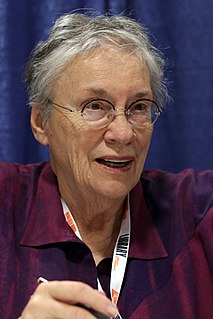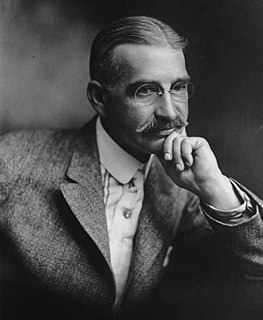A Quote by F. Scott Fitzgerald
He was resentful against all those in authority over him, and this, combined with a lazy indifference toward his work, exasperated every master in school. He grew discouraged and imagined himself a pariah; took to sulking in corners and reading after lights. With a dread of being alone he attached a few friends, but since they were not among the elite of the school, he used them simply as mirrors of himself, audiences before which he might do that posing absolutely essential to him. He was unbearably lonely, desperately unhappy.
Quote Topics
Absolutely
After
Against
Alone
Among
Attached
Audiences
Authority
Before
Being
Being Alone
Combined
Corners
Desperately
Discouraged
Dread
Elite
Essential
Every
Few
Few Friends
Friends
Grew
Him
Himself
His
Imagined
Indifference
Lazy
Lights
Lonely
Master
Might
Mirrors
Over
Posing
Reading
Resentful
School
Simply
Since
Sulking
Them
Those
Took
Toward
Unhappy
Used
Were
Which
Work
Related Quotes
I didn't have a chance to buy you anything," she said, then held both closed hands toward him. Uncurled her fingers. In each cupped palm a brown egg. He took them. They were cold. He thought it a tender, wonderful thing to do. She had given him something, the eggs, after all, only a symbol, but they had come from her hands as a gift. To him. It didn't matter that he'd bought them himself at the supermarket the day before. He imagined she understood him, that she had to love him to know that it was the outstreched hands, the giving, that mattered.
Often nothing keeps the pupil on the move but his faith in his teacher, whose mastery is now beginning to dawn on him .... How far the pupil will go is not the concern of the teacher and master. Hardly has he shown him the right way when he must let him go on alone. There is only one thing more he can do to help him endure his loneliness: he turns him away from himself, from the Master, by exhorting him to go further than he himself has done, and to "climb on the shoulders of his teacher."
He almost said to himself that he did not like her, before their conversation ended; he tried so hard to compensate himself for the mortified feeling, that while he looked upon her with an admiration he could not repress, she looked at him with proud indifference, taking him, he thought, for what, in his irritation, he told himself - was a great fellow, with not a grace or a refinement about him.
A curious thing about Ugu the Shoemaker was that he didn't suspect in the least that he was wicked. He wanted to be powerful and great, and he hoped to make himself master of all the Land of Oz that he might compel everyone in that fairy country to obey him, His ambition blinded him to the rights of others, and he imagined anyone else would act just as he did if anyone else happened to be as clever as himself.
Teach your scholar to observe the phenomena of nature; you will soon rouse his curiosity, but if you would have it grow, do not be in too great a hurry to satisfy this curiosity. Put the problems before him and let him solve them himself. Let him know nothing because you have told him, but because he has learnt it for himself. Let him not be taught science, let him discover it. If ever you substitute authority for reason he will cease to reason; he will be a mere plaything of other people's thoughts.
Culture is the suggestion, from certain best thoughts, that a man has a range of affinities through which he can modulate the violence of any master-tones that have a droning preponderance in his scale, and succor him against himself. Culture redresses this imbalance, puts him among equals and superiors, revives the delicious sense of sympathy, and warns him of the dangers of solitude and repulsion.
Consider the idea of a God who is essentially sadness and longing, yearning to reveal himself, to know himself through a being who knows him, thereby depending on that being who is still himself - yet who in this sense creates Him. Here we have a vision which has never been professed outside of a few errant knights of mysticism. To profess this essential bipolarity of the divine essence is not to confuse creator and created, creature and creation. It is to experience the irrevocable solidarity between the Fravarti and its Soul, in the battle they undertake for each other`s sake.
What a man does, that he has. What has he to do with hope or fear? In himself is his might. Let him regard no good as solid but that which is in his nature, and which must grow out of him as long as he exists. The goods of fortune may come and go like summer leaves; let him scatter them on every wind as the momentary signs of his infinite productiveness.
She stood before him and surrendered herself to him and sky, forest, and brook all came toward him in new and resplendent colors, belonged to him, and spoke to him in his own language. And instead of merely winning a woman he embraced the entire world and every star in heaven glowed within him and sparkled with joy in his soul. He had loved and had found himself. But most people love to lose themselves.
His master’s pain was his pain. And it hurt him more for his master to be sick than for him to be sick himself. When the house started burning down, that type of Negro would fight harder to put the master’s house out than the master himself would. But then you had another Negro out in the field. The house Negro was in the minority. The masses—the field Negroes were the masses. They were in the majority. When the master got sick, they prayed that he’d die. If his house caught on fire, they'd pray for a wind to come along and fan the breeze.
If this being is omnipotent, then every occurrence, including every human action, every human thought, and every human feeling and aspiration is also His work; how is it possible to think of holding men responsible for their deeds and thoughts before such an almighty Being? In giving out punishment and rewards He would to a certain extent be passing judgment on Himself. How can this be combined with the goodness and righteousness ascribed to Him?






































